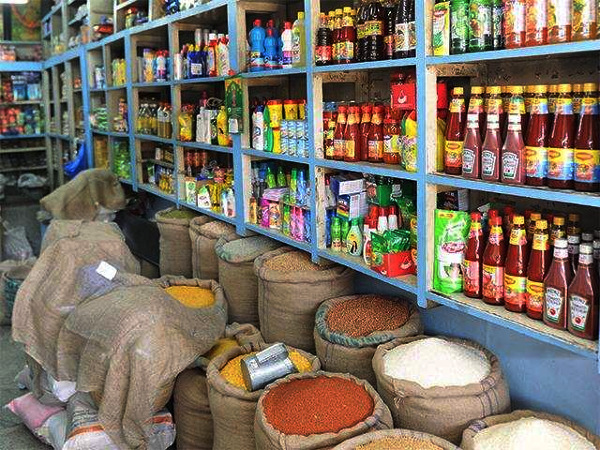NEW DELHI: The government is planning to significantly cut down the number of approvals required for opening kirana shops or eateries, amid demands to move to a single-window regime to reduce red tape and make it easier to do business at the grass roots.
Currently, opening a store requires 28 clearances – ranging from GST registration to a licence under the Shops and Establishment Act as well as those for insecticides and permission from the weights and measures department. Similarly, a dhaba or a restaurant requires around 17 approvals – from no-objection certificate for fire to signage, clearances from municipal bodies and licence to play music and clearance from the food regulator – which are hyper-local in nature and vary from city to city.
The government will not allow foreign companies to operate in multi-brand segment and necessary action will be taken against people indulging in predatory pricing, commerce and industry minister Piyush Goyal said. Goyal also “asserted that predatory pricing will not be allowed and necessary action will be taken against defaulters.
In contrast, only four clearances are needed to open a restaurant in countries such as China and Singapore. The government has vowed to make life simple for entrepreneurs as it races against time to get India into the top 50 in the Ease of Doing business ranking globally.
The National Restaurants Association of India (NRAI) cited the prevalence of archaic laws that prove to be an impediment for restaurant owners. For instance, a Subway restaurant requires to submit around 24 documents to the police in the capital to serve a sandwich, while only 13 documents are needed to apply for the procurement of a weapon, according to the apex body.
A government official said, there are multiple rules and regulations governing kirana shops and the idea is to reduce it significantly.
Besides, the department for promotion of industry and retail trade (DPIIT) is looking at doing away with the need for renewal of licences, a move meant to help small businesses focus on running their shops and eateries instead of running around government offices and dealing with inspectors.
“It’s a proactive step from the government. Can we please have a uniform code for restaurants at a national level with a digital way of doing business? Currently, we are just getting photocopies the whole day. Not only every state, but every city with its various municipal bodies, has a different set of rules for restaurants. Some of the clearances needed, like in the case of fire, can be city-specific but what role does the tourism department have when it comes to giving clearances to restaurants,” said Rahul Singh, president of NRAI and founder & CEO of The Beer Café.
Mukesh Ambani-led Reliance Industries’ entry into online retailing will help expand the current 15,000 digitised retail stores to over 5 million by 2023, a study of Bank of America Merrill Lynch said. As much as 90% of India’s $700 billion retail market is unorganised, made up mostly of neighbourhood kirana stores selling groceries & other sundries.
The issue was flagged by industry representatives during a recent meeting with the commerce and industry minister Piyush Goyal and DPIIT has begun work on paring number of requirements for sectors that are seen to be major job generators and do not require large doses of capital.
Source: ToI
Image Courtesy:ET Tech
You may also like
-
Trade Connect E-platform For Exports Is Single Window, Fast, Accessible And Transformational: Shri Piyush Goyal
-
Dot Simplifies Approval Processes For Telecom Licenses And Wireless Equipment
-
Coal Production and Supply Trends on Positive Trajectory
-
Union Minister To Release Booklets On Promotion Of Indigenous Species & Conservation Of States Fishes
-
2nd India-Japan Finance Dialogue held in Tokyo on 6th September, 2024
